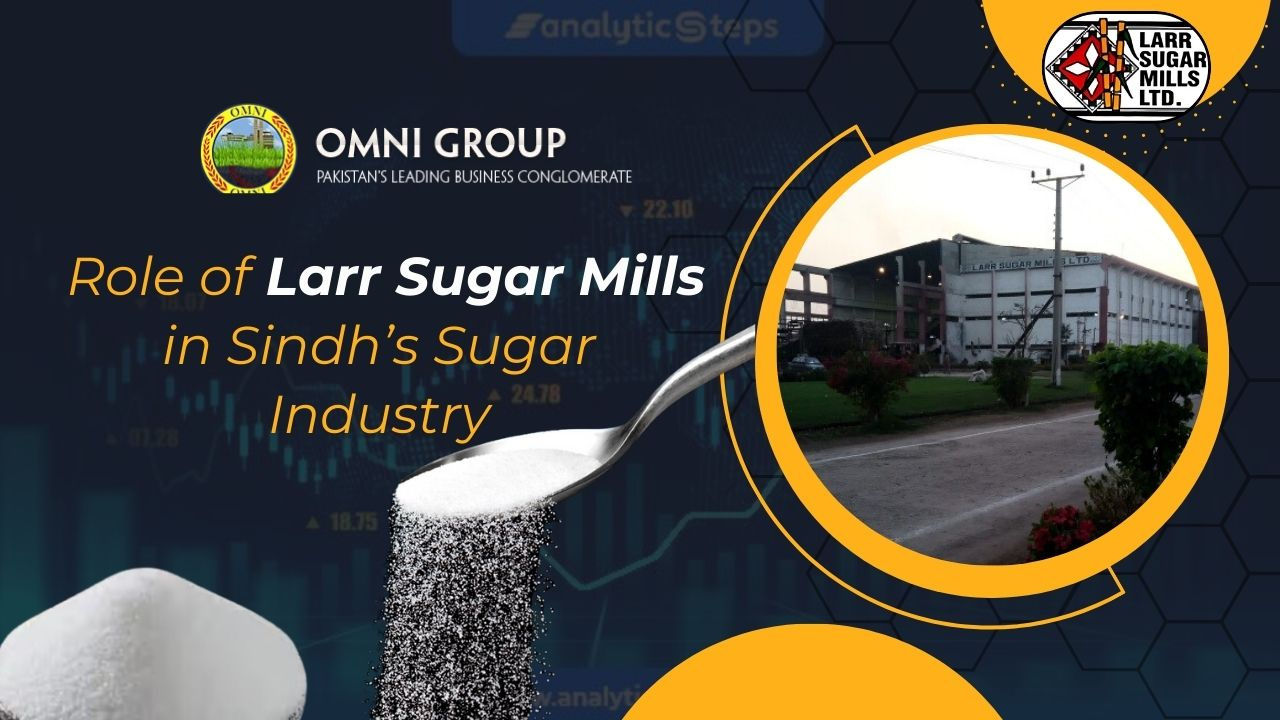Larr Sugar Mills, situated in Sujawal, District Thatta, Sindh, has been a significant player in the sugar manufacturing industry since its inception in 2014. Acquired by the Omni Group through an official tender process conducted by the Sindh High Court, the company underwent restructuring after its last crushing season in 2010-2011.
Environmental Concerns in Sugar Production

Sugar production, while essential for meeting global demands, poses several environmental challenges. These challenges range from water usage and pollution to land degradation and greenhouse gas emissions. Understanding and mitigating these impacts are crucial for sustainable operations.
Water Usage and Pollution

The extensive water usage in sugar production is a major environmental concern, particularly in regions like Sindh, where water scarcity is already an issue. Sugar mills utilize significant amounts of water for cleaning, extraction, and cooling processes, placing considerable pressure on local water resources. Additionally, the discharge of effluents containing organic matter, suspended solids, and chemicals from the refining process often leads to water pollution. Without proper treatment, these effluents can contaminate water bodies, endangering aquatic life and potentially impacting human health.
Land Degradation

The cultivation of sugarcane, the primary raw material for sugar production, can contribute to land degradation if not managed sustainably. Intensive farming practices, including monoculture and excessive use of agrochemicals, can lead to soil erosion, loss of soil fertility, and biodiversity decline.
Furthermore, the expansion of sugarcane plantations often results in deforestation, especially in ecologically sensitive areas. This loss of forest cover not only impacts local ecosystems but also contributes to climate change by reducing carbon sequestration capacity.
Greenhouse Gas Emissions

Sugar production is also associated with significant greenhouse gas emissions, primarily carbon dioxide and methane.These emissions occur throughout the production process, from land clearing and cultivation to processing and transportation.
The combustion of fossil fuels for energy, particularly during milling and refining operations, contributes to CO2 emissions. Additionally, the anaerobic decomposition of organic matter in wastewater treatment facilities and the decomposition of agricultural residues generate methane, a potent greenhouse gas.
Mitigation Strategies

Larr Sugar mills implement several strategies to control their environmental impact:
Water Conservation: Implementing water-saving technologies and practices reduce the amount of water used in sugar production processes. This includes optimizing water usage for cleaning, recycling water where possible, and investing in water-efficient equipment.
Effluent Treatment: Installing effective wastewater treatment systems significantly reduce the pollution caused by the discharge of effluents from sugar mills.
Environmental Monitoring: Regular monitoring of air, water, and soil quality around sugar mills help identify any environmental issues and track the effectiveness of mitigation measures. This monitoring can be done internally or in collaboration with regulatory agencies.
Sustainable Sourcing: Encouraging sustainable agricultural practices among sugarcane growers can help minimize environmental impacts upstream. This includes promoting practices like reduced pesticide and fertilizer use, soil conservation, and biodiversity protection.
Energy Efficiency: Improving energy efficiency within sugar mills can reduce their overall environmental footprint. This can involve investing in energy-efficient machinery, utilizing renewable energy sources, and implementing energy-saving practices throughout the production process.
Community Engagement: Engaging with local communities and stakeholders can foster transparency and accountability in environmental management efforts. This can include sharing information about environmental initiatives, addressing community concerns, and collaborating on sustainable development projects.
Larr Sugar Mills, along with all entities in the sugar industry, must prioritize sustainability and take proactive steps to minimize their environmental impact. This involves implementing water conservation practices, promoting sustainable farming techniques, embracing renewable energy sources, optimizing operational processes, and conserving biodiversity. By undertaking these measures, Larr Sugar Mills work towards more environmentally friendly operations while securing its long-term viability.



